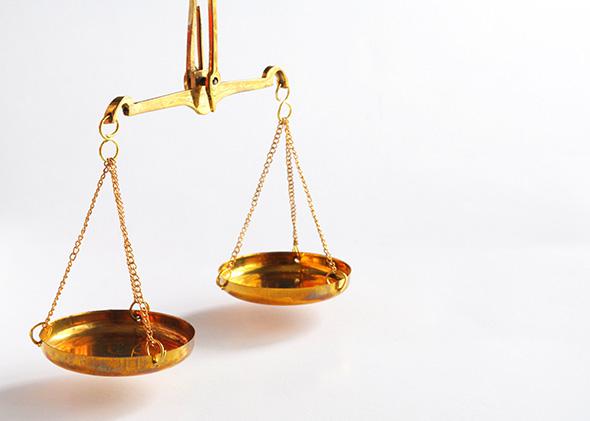The president of the United States has an ultimate power: He can pardon anyone convicted of a federal crime with the simple stroke of his pen.* A pardon ostensibly makes it almost seem as if a criminal conviction never occurred. (Governors may similarly pardon state crimes.) The president has had this power (Article II, Section 2 of the U.S. Constitution) since the dawn of the republic.
Still, when a president exercises this power, the very act of issuing a pardon unfortunately reminds (or even, sometimes, tells) the public that the person he pardoned was once convicted and maybe even jailed for his conduct. Because a pardon doesn’t necessarily tell the public that the recipient was actually innocent (although some pardon recipients try to sell it as such), the would-be pardon applicant may sometimes be better off to let the sleeping dog lie.
A judge, however, has the power to do something that is in some respects far better. A judge has the power to expunge the conviction—to put the prior conviction in a dark hole undiscoverable by the press or any would-be snooper. Remarkable, right? The judge has the power to wipe the slate clean using a “John Doe” designation for the person to be pardoned. The judge can actually remove from the public court record the very existence of a conviction, and can do so without identifying—and therefore publicizing—the identity of the defendant. Sure, if the case was initially reported in the press or had been the subject of discussion in the community where the defendant resided, a judicial order expunging the conviction won’t un-ring that bell. But it can change the life of an individual without public stature. If a would-be employer does a search to determine if an applicant whose record was expunged has a criminal record, the employer will simply strike out. There will be no criminal record, period.
This process gives people a second chance. And shouldn’t some people get an opportunity for a second chance? This is a nation—isn’t it?—of second chances.

Photo courtesy USGov via Wikimedia Commons.
Judge John Gleeson of the Eastern District of New York found such a case—and last month he did something that very few judges have ever done. Jane Doe, obviously not her real name, is a home health aide. She was convicted for health care fraud (technically, although it was really insurance fraud) 13 years ago for her conduct 17 years ago when she found herself in circumstances echoing those of Jean Valjean. She was a single mother of four children; they lived in a two-bedroom apartment where the monthly rent exceeded her net monthly income of $783. Doe participated in an automobile insurance fraud scheme popular at the time. Organizers staged car “accidents,” and when the passengers were taken to a clinic by the police, the “injured” passenger would sign over her no-fault insurance rights to the clinic, which would then bill the insurance companies for services that were never performed. Some of the “accidents” also became the basis of personal injury lawsuits.
Doe, importuned to do so, pretended to be a passenger in one of these schemes. The clinic received some $31,000 and, after she commenced a civil lawsuit, Doe received $2,500. She was found guilty of fraud and sentenced to five years probation, 10 months of home detention, and restitution well in excess of the $2,500 she actually received.
Probation department files showed that Doe wanted to work and obviously needed to work to support herself and her children. She took a part time job at a homeless shelter and then at a home for children with mental disabilities. Her total monthly income was small, yet she kept up her restitution obligations, paying the $25 per month ordered by Judge Gleeson at the time of sentencing. Over the years, Doe went on and off public assistance. By 2005, fingerprint and background checks were common practice so that, even when Doe was hired, she was quickly un-hired when her conviction came to light.
In 2014, Doe sought to expunge her record. Yes, she did commit a felony. But she was a minor participant, the crime was nonviolent, she was in desperate financial straits at the time, she served her time, and she has not engaged in any criminal activity in the 17 years since. Expunging a conviction is to be done in “extreme circumstances,” and Judge Gleeson found those circumstances here after reviewing the probation department’s almost 1,000-page file. And in doing so, he took great pains to preserve Doe’s anonymity, going so far as to not even name the employers she previously worked for.
Incidentally, in another case, albeit involving a different issue, Judge Gleeson strongly encouraged the then-U.S. attorney (now Attorney General) Loretta Lynch to reconsider the charges against a man who, because of sentencing rules in effect in 1995, Judge Gleeson had sentenced to 57 years for three carjackings. After the defendant had served 20 years, during which time his disciplinary record was “extraordinary” (the government’s word), after a strong nudge from Gleeson, Lynch’s office took the steps that the very concept of justice itself contemplates: It reviewed the decades-old files, considered the defendant’s behavior while in jail, and spoke to the victims, all of whom said that, after 20 years, the defendant deserved another chance. Gleeson “allowed” the government to vacate two of the three convictions from his court, so that the defendant could be resentenced to time served.
There are myriad injustices faced by good people who, years before, believed they had no choice but to take a fateful step and commit a crime. And the injustice, as the Doe case tells us, can continue to have an afterlife long after the convicted has served her time.
According to Judge Gleeson’s Doe decision, there are 65 million Americans who have a criminal record and suffer adverse consequences as a result. Sixty-five million people! The number is simply staggering—there are fewer than 320 million people in the United States.
I don’t suggest that judges blindly expunge criminal records as a matter of course. But isn’t being able to work a crucial factor in enabling ex-convicts to re-enter society? Shouldn’t judges be open to considering the impact a one-time, nonviolent criminal conviction may have on a person’s ability to support herself and her family? Shouldn’t those who have already paid their debt to society be permitted to participate in society without fear of retribution? Do we want people who have re-established their lives to have to look over their shoulder every time they have to apply for something which requires a fingerprint or a background check?
Judges take an oath: They solemnly swear to administer justice and do equal right to the poor and to the rich. A willingness to expunge a criminal record in the right circumstances is something a judge should consider as part of the array of powers enabling him or her to implement the individualization of justice.
Dale J. Degenshein, also of Stroock & Stroock & Lavan LLP, participated in writing this article.
Correction, June 5, 2015: This article originally misstated that the president can pardon people convicted of state or federal crimes. The president can pardon only those convicted of federal crimes. (Return.)
